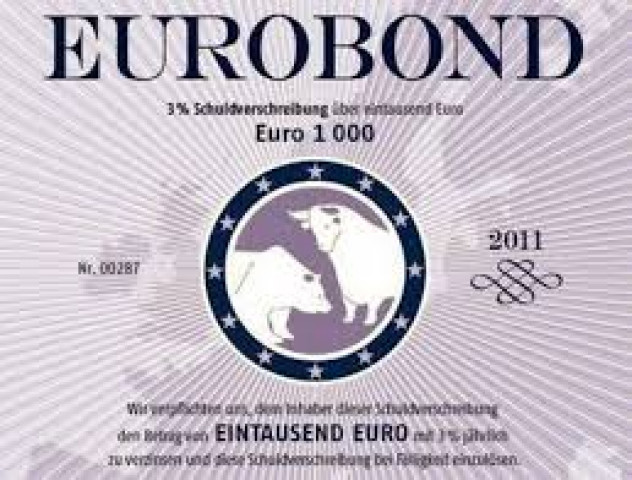Eurobonds rebound as IMF approval nears
Prices rise up to 19 cents on the news, further gains expected if IMF approves loan on September 25

Pakistan's US dollar-denominated Eurobonds and Sukuk prices rebounded in global markets this week after the International Monetary Fund (IMF) announced that its executive board would consider final approval for a $7 billion loan programme on September 25.
In its weekly update, Topline Research reported on Saturday that sovereign bonds rallied between 2 cents and 19 cents in the week ending September 13, compared to the previous week. Previously, some bonds had ticked down by a few cents or remained stagnant due to the persistent delay in the IMF Executive Board's meeting to consider Pakistan's new loan case.
Earlier, Finance Minister Muhammad Aurangzeb had expected the IMF Board to approve Pakistan's loan in August. The delay caused uncertainty among global investors about the South Asian economy.
The latest data shows that Pakistan's 30-year, $800 million global bond, maturing in April 2051, increased by 19 cents to 77 cents per unit. Another 30-year bond worth $300 million, maturing in March 2036, rose by 18 cents to 75.7 cents per unit this week. The 10-year bond, worth $500 million and maturing in September 2025, ticked up 2 cents to 97.3 cents per unit, bringing its price close to the original $1 per unit. In March 2024, it was trading at 90.06 cents.
Ismail Iqbal Securities' Head of Research, Saad Hanif, told The Express Tribune that the IMF's upcoming review of Pakistan's loan case has removed uncertainty surrounding the $7 billion Extended Fund Facility (EFF). He added that the recent upgrade in Pakistan's credit rating by Moody's and Fitch in July and August had also restored global investor confidence, keeping the country's bonds within favourable pricing ranges.
Tahir Abbas, Head of Research at Arif Habib Limited, projected that the performance of Pakistan's Eurobonds would improve once the IMF approves the loan on September 25. The loan would unlock foreign financing from other multilateral and bilateral creditors, increasing the supply of foreign currency in the domestic economy and boosting investor confidence in the Eurobonds.
Pakistan has seven Eurobonds and Sukuk listed in global debt markets, amounting to $6.80 billion, with maturities ranging from September 2025 to April 2051. The new loan programme and credit rating improvement may lead the government to return to global capital markets to raise additional funds through Panda bonds, Eurobonds, or Sukuk.
Hanif noted that the recent 200-basis-point cut in the central bank's key policy rate to 17.5%, the lowest in 20 months, also contributed to the rise in global bond prices. The rate cut reduced the cost of raising domestic debt, easing the need for financing from international capital markets.
The rate cut signalled to global investors that Pakistan's economy is entering a growth phase after stabilising over the past couple of years. This could generate more resources and reduce dependence on foreign financing. Investors who may exit from rupee-denominated local Treasury bills could turn to Pakistan's Eurobonds for better returns, he said.
Experts said other positive developments in the domestic economy, such as a continued rise in foreign exchange reserves, have kept Eurobond prices high. Reserves rose to $9.47 billion this week, up from $4 billion in June 2023. Worker remittances remain strong at $3 billion per month, while export earnings have improved.
In addition, the current account deficit has remained near breakeven levels. Inflation dropped to 9.6% in August, the first single-digit inflation rate in three years, after reaching a multi-decade high of 38% in May 2023.




1733130350-0/Untitled-design-(76)1733130350-0-208x130.webp)













COMMENTS
Comments are moderated and generally will be posted if they are on-topic and not abusive.
For more information, please see our Comments FAQ